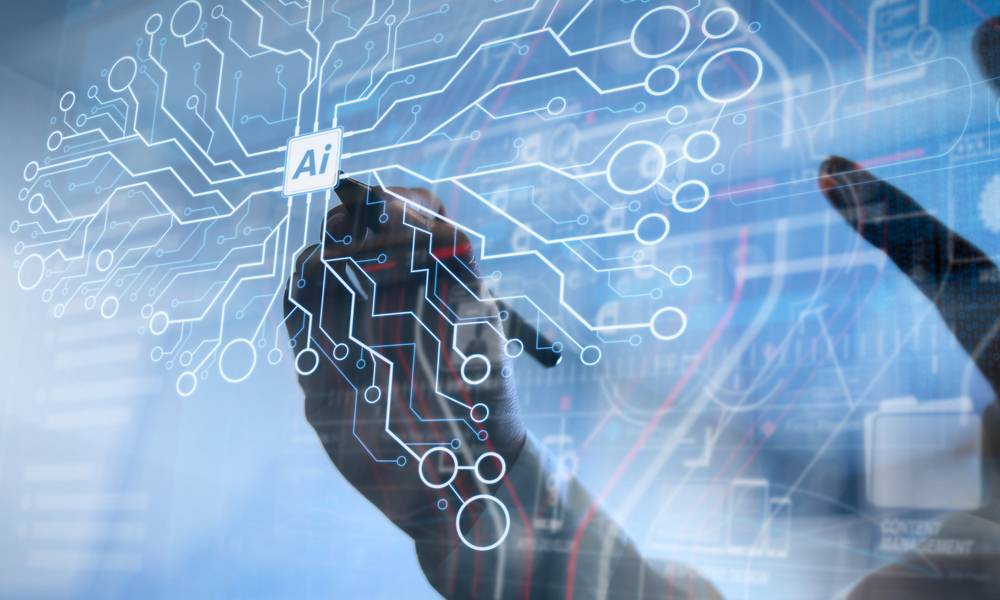Four tech innovations that will change the way we live and work
Four emerging innovations will have a significant impact on the way people work and live over the next decade and beyond, according to IBM
Automation and digital platforms are changing the fundamental nature of work, and the next few years will present significant opportunities and challenges for the Australian workforce. Some 2.7 million Australian jobs (roughly 21 per cent of the workforce) are at risk from automation over the next 15 years, according to a report by the Australian Computer Society. On the other hand, it says more than twice as many jobs can be created if Australia decides to invest in skills development. Finally, it predicts technology will augment 4.5 million Australian workers, leading to a 15 per cent capacity uplift to businesses.
So education and reskilling the Australian workforce will be crucial in preventing long-term structural unemployment and rising inequality. Understanding the current and potential shifts in technology can help business leaders and employees prepare and move their organisations forward. Technologies like artificial intelligence (AI), the internet of things (IoT), blockchain and quantum computing will have a significant impact on the way people work and live over the next decade and beyond, according to IBM Developer Advocates Gloria Chan and Alison Haire, who recently spoke on the impact of innovative tech on the world during an Industry Insights event hosted by UNSW Business School’s Career Accelerator.
So what are these technologies, how are they poised to disrupt the way we work and live in the future, and where will these fields have the most impact?
1. Advances in quantum computing
Half a decade from now, quantum computing could be an essential element of any computer engineering degree, as it will become fundamentally understood as a practical tool to solve problems in many disciplines and industries, said IBM’s Ms Haire.

Quantum computing emerged from the physics field of quantum mechanics in the 1900s to explain nature on the scale of subatomic particles or atoms, which led to advances such as transistors, lasers and magnetic resonance imaging. “More recently, scientists have been able to move quantum particles through time, as well as through seemingly impossible barriers… where I think we’re going to see a vast number of scientific breakthroughs and tech innovations in the next 50 years. So it’s kind of a new frontier," said Ms Haire.
IBM recently announced its Roadmap to Scaling Quantum Technology, which includes plans to reach 1000-plus qubits – the basic unit of quantum information, analogous to the bits of classical computing – by 2023. This is an aggressively ambitious mission, one which “recognises that merely incremental increases in qubit counts and more sophisticated algorithms alone will not deliver quantum advantage or the point where specific information processing tasks can be performed more efficiently or cost-effectively on a quantum computer, versus a classical one,” according to IBM.
Importantly, all quantum computers have the potential to work together with current computing infrastructure to solve complex problems that were previously impractical or impossible, explained Ms Haire. Such innovations are particularly important for businesses. “Most businesses would probably jump at the chance to have, for example, been on the front foot of when the internet was invented. And I think that is quantum computing – it’s the next frontier of computing,” she explained.
“Most businesses would probably jump at the chance to have, for example, been on the front foot of when the internet was invented. And I think that is quantum computing – it’s the next frontier of computing"
Alison Haire, Developer Advocate at IBM
But IBM is not the only large organisation that invests in quantum computing. Google and Microsoft both own research labs, while UNSW Sydney researchers recently demonstrated the lowest noise level on record for a semiconductor qubit. From solving complicated problems and computations, modeling to help solve things like climate change, or tracking and finding vaccines, the potential impact of quantum computing is far-reaching. As well as being able to solve computational problems such as integer factorisation, quantum computing can help companies address issues as huge as supply chain management.
According to analytics and data company Dun & Bradstreet, 94 per cent of Fortune 1000 companies are facing supply chain disruptions today. Food security is a good example of this, but through quantum computing, businesses might be able to solve food security issues such as waste by using the likes of qubits as the tools of the trade to stave off the next great famine. “Take tasks such as supply chain management and logistical operations, for example, these can be done quickly, with data being optimised in a fraction of a second compared to previous methods,” explained Ms Haire.

2. AI and machine learning
Through quantum computing, other fields are more likely to advance sooner as well, like AI and machine learning, said Ms Haire. IBM is currently innovating in this field, with a whole suite of AI called IBM Watson, which aims to change how people work, redefine the way businesses operate, and transform industries.
“A lot of people probably don’t realise that IBM does have research labs… we’ve actually got AI insights, and we’re using AI to help with the COVID-19 response… we’re also helping with the climate response using AI technology,” said Ms Haire. For example, IBM utilised its Watson Works AI for contact tracing, mask detection, facilities management to ensure the health and productivity of their people in the changing workplace.
Another area where AI is already changing the way people work is that it has fueled a push towards code-free tech products, similar to the original WordPress. “You don’t necessarily need to know how to code anymore, because there are just so many things out there that can help you do it. So there’s a lot of great things happening out there that are helping to change the way we live and work,” said Ms Haire.

3. Blockchain and traceability
Blockchain is an incorruptible digital ledger of transactions, that can record not just financial transactions, but basically, anything of value, explained Ms Chan. Through a collaborative blockchain network set up between manufacturers and distributors, information – such as traceability details about product origin and quality, the nutritional properties of products, and the presence of any allergens or questionable substances – can be stored securely.
But it is essential to recognise that blockchain is not bitcoin; instead, it is the technology that enables Bitcoin, noted Ms Chan. And it can be used in a myriad of ways, but it will become especially crucial within the food industry supply chain. For example, in the future, blockchain could prevent incidents like the 2018 Australian strawberry contamination, and blockchain traceability was even listed as one of the recommendations by the Food Standards Australia New Zealand in a report following the incident.
“It took a lot of investigation to find out who had put in the needles into the strawberries. But imagine if they had utilised blockchain: they would have been able to trace it immediately, this is where it went wrong, and wouldn’t even reach the shelves by then because we would have found the source,” explained Ms Chan.
4. IoT and seamless automation
IoT also creates a whole new world of possibilities by enabling seamless automation in a wide variety of industries. "At IBM we work with companies of all sizes to help create everything from agritech, worker safety and predictive maintenance solutions leveraging elements from Watson and IBM cloud catalogues," said Ms Chan. Indeed, AI and IoT combined, can innovate asset management, optimise real estate and facilities, improve software and systems engineering, and advance organisations’ digital transformation.
Through IoT, it is possible to create vehicles that engage with people, infrastructure and surrounding environments, and IoT data can help make informed decisions to optimise the experience of occupants, staff and management, said Ms Chan. For example, she said Prometeo, the winner of Call for Code 2019, is making a real and positive impact with their IoT device that monitors firefighters' health and exposure to smoke and toxins in real-time, ensuring the safety of the lives of frontline responders.

So technology has the capability to transform our lives and the way that society functions for the better, and to enable novel solutions to complex issues, added Ms Haire. If we look back less than 100 years, innovations in healthcare, energy, communications and home appliances that we take for granted today paved the way for major social changes (particularly for women and minorities) and gave shape to a new vision of what we value and how we collectively live.
"Modern technology such as the personal computer, internet and hardware advances has also contributed to making our lives easier, better and more fun. Humans are innately industrious, imaginative and adaptable and we don't have to look far right now to find examples of this in action," she said.
And 2020 has certainly been a year of complete disruption to people globally, but technology and human adaptability have enabled us to work and communicate from home, track COVID-19 cases and model data, to work on vaccines remotely, convert whole factories to making new healthcare items and to strengthen and enable supply chains. "The impact of tech innovations and improvements will continue to tackle the hardest problems facing humanity as well as change the way we live our daily lives," said Ms Haire.
"Emerging tech and science advances will enable a future with automated vehicles, clean energy advancements, training and education with virtual reality and augmented reality, more smart devices, wearables and nanotechnology, biomedical devices – particularly for healthcare purposes, advances in agritech, space exploration and robotics and further changes in how society functions."
For more information about Career Accelerator and UNSW Sydney's industry events, please visit the UNSW Business School website.
